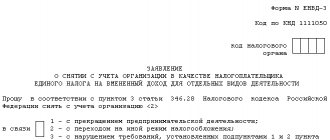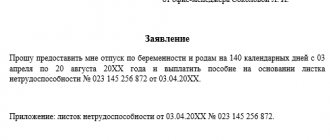How to issue money correctly
The procedure for issuing accountable amounts to employees consists of the following stages:
- The employee draws up an application from the accountable person for the issuance of money, which indicates the intended purpose of the funds, the amount and justification for the need for their use.
- The manager studies the employee’s written request, makes a decision and endorses the application.
- The appeal with the resolution is transferred to the cash desk of the institution, where the cashier creates an expenditure cash order and issues the money for reporting.
The employee is required to sign the cash receipt, count and check the cash issued.
Morphemic analysis of the word “accountability”
The word sub-report in its initial form consists of the prefix “pod-” and the root “report”, they also form the basis of the word. There is no suffix and the ending is zero, but it appears when the form of the lexeme changes.
report
Number of morphemes:
- prefix: 1 (one);
- root: 1 (one);
- connecting vowel: 0 (zero);
- suffix: 0 (zero);
- postfix: 0 (zero);
- ending: 0 (zero).
The word contains 2 (two) morphemes.
Etymologically, there is another prefix “from”, comparable to the words “shortfall”, “recount”, “even” and “odd”. So the original root is “even”, and “from” is just another prefix, but for some reason this fact is not taken into account in modern word-formation analysis.
Similar article “Uncounted” or “countless”: how to spell it?
Examples of sentences with continuous spelling:
- The engineer received a travel allowance in the amount of 5,000 rubles from the cash register.
- You must provide a documented account for the money received.
- With the help of fake gas station receipts, some drivers write off large sums of money from their accounts.
How to correctly formulate an employee
The appeal is drawn up in a single copy addressed to the head of the organization or to another responsible person with the appropriate authority. There is no unified form. A correct application on behalf of an employee contains information:
- Information about the applicant: full name of the employee, position and structural unit.
- The required amount for expenses.
- Justification for receiving money.
- The period within which it is planned to make the necessary expenses, events, trips.
- Date and signature with transcript.
The application must be submitted both in written (by hand) and electronic form. If you have prepared an electronic request, print it out, sign it and submit it to the director for approval.
This is what a sample application for reporting from an employee looks like:
| To the director of the Sports and Youth Sports School "gosuchetnik.ru" Ivanov Ivan Ivanovich from the deputy director on organizational work Klubina Inna Alexandrovna Statement I ask you to give me funds as an account for the organization and holding of the “School Anniversary” event, based on:
Total: 19,250.00 (Nineteen thousand two hundred fifty rubles 00 kopecks) rubles. For the period until March 16, 2020. Klubina /Klubina I.A./ 03/10/2020 I allow Director of SDYUSSHOR "gosuchetnik.ru" Ivanov /Ivanov I.I./ |
A little theory about reporting
Before we discuss possible debt repayment options, we will briefly outline the key points of current legislation.
Today, the rules for cash payments are regulated by Central Bank Directive No. 5348-U dated December 9, 2019. According to the Directive, the organization does not have the right to spend the returned accountable funds for any purposes directly. This money must be deposited into a current account, and only then spent on necessary needs.
Thus, if the cash documents reflect the return of the accountable amount, and then this money is immediately issued from the cash register for some purpose, bypassing the account, this is a violation of current legislation.
What does it threaten?
This violation is punishable under Art. 15.1 of the Code of Administrative Offenses of the Russian Federation: the manager can be punished in the amount of 4 to 5 thousand rubles, and the organization itself - in the amount of 40 to 50 thousand rubles.
However, the organization has the opportunity to avoid a fine . So:
- The period for bringing to justice for violation of cash discipline, if it is not related to the use of an online cash register (and this is not our case) is 2 months (4.5. Code of Administrative Offenses of the Russian Federation).
- According to Art. 3.4 and 4.1.1 of the Code of Administrative Offenses of the Russian Federation, a fine for small and medium-sized businesses can be replaced with a warning if the offense was committed for the first time and did not cause harm to the life and health of people or damage to property.
And another important point :
According to the latest edition of the Central Bank Directives dated March 11, 2014 No. 3210-U, the organization independently sets the deadlines within which the employee must report on accountable amounts. That is, you can issue money on account not only for several days (months), but even for several years.
But you need to understand that such a long period must be justified by production necessity. Otherwise, tax authorities can again reclassify the hanging debt as income. However, it is possible to set a reasonable but fairly long period.
For example: state in the order that the director must report on the report within six months. This period makes it possible to choose the best option for repaying the debt if there are no documents confirming the targeted expenses.
But the deadline for submitting the advance report has expired, and there is no money and documents, how to pay off the debt? Here are a few available options.
How to write to a manager
The director is the same accountable person as other employees. He is required to draw up an application for cash withdrawal, but its content is not significantly different.
The request is written not to the manager, but to the company. That is, in the upper right corner the name of the organization, full name and position of the manager are indicated. That's all. In the text, the manager does not request funds, but records the fact of their issuance. Then the purpose of the expenditure, the amount of cash and the reporting date are indicated.
Here is an approximate version of such an application for money report:
The director signs this request only once - there is no need to duplicate the signature of the director as a responsible and official. Then the accountant issues the visa, thereby confirming the issuance of cash from the cash register.
Options for writing off accountable funds
Let's consider possible write-off options:
Option 1: The accountant correctly compiled the expense report and submitted all supporting documents. The accountant makes an entry based on the purpose of issuing the advance Dt 26 (44, 10, 41...) Kt 71.
If the accountable person had an overspend, the accountant issues the required amount.
When, after spending, the accountant has unspent money left, he must deposit it in the cash register.
Option 2: The employee quit. Did not report for accountable funds, did not issue a refund.
The entire amount is recognized as a receivable and, upon expiration of the limitation period, can be written off as a loss to the enterprise. The statute of limitations is 3 years from the date when the accountable should have fulfilled the obligations (Articles 196, 200 of the Civil Code of the Russian Federation; letter of the Ministry of Finance of Russia dated September 15, 2010 No. 03-03-06/1/589; clause 2 of Article 265 of the Tax Code RF). After recognizing the debt as bad, it is necessary to include the amount of the advance in the income of the reporting person and, before March 1 of the year following the end of the year, inform him and the tax office in writing about the impossibility of withholding tax and the amount of the debt (clause 1 of Article 210, clause 5 of Article 226 Tax Code of the Russian Federation, letter of the Ministry of Finance of Russia dated September 24, 2009 No. 03-03-06/1/610).
Read all about the procedure for writing off receivables in the article “Procedure for writing off receivables.”
Option 3: The accountant continues to work, but for some reason cannot account for the advance payment.
The organization has the right to withhold the entire amount of the debt from his salary. This can only be done with the written consent of the employee (letter of Rostrud dated 08/09/2007 No. 3044-6-0) and no more than 20% of his salary monthly (Article 138 of the Labor Code of the Russian Federation).
Read more about this in the materials:
Option 4: The accountable person is the director. If he did everything correctly, then the write-off will be the same as always. And if not? We can write off his debt with the dividends due to him.
Option 5: A tragic situation occurred. The employee died without having time to account for the money received. In the next section, we will consider in more detail what actions an accountant should take in such a situation.
How to draw up to get money on the card
When you receive money by bank transfer to a bank card, it is not necessary to fill out an application. But it is not prohibited (for example, an accountant requires such a request for internal reporting). The form and content of the official appeal will not change: it is addressed to the manager, indicating the purpose and amount of expenses.
Instead of the phrase “Please give me cash,” write “Please transfer money to a bank card” and indicate in detail its details - the name of the bank, its INN, KPP and BIC, current and correspondent accounts.
Write-off of an accountable person upon death of an accountable person
How can an accountant register a write-off upon the death of an accountable person?
First of all, you need to ask relatives to provide the accounting department with documents confirming the death of the employee. This may be a death certificate issued by the registry office, or a court order declaring him dead.
After this, an order is drawn up to terminate the employment relationship due to the death of the employee on the basis of clause 6 of Art. 83 Labor Code of the Russian Federation.
ATTENTION! The date of the order must be the same as the date of death listed on the death certificate or court order.
When the order is drawn up, you need to draw up a bypass sheet. It is at the time of checking the affairs of the deceased that it may become clear that he has unclosed accountable money.
In what order and how documents are filled out in connection with the death of an employee, read the article “The procedure for dismissing an employee due to death.”
An accountant cannot turn to relatives with a request to return the missing money, since all the employee’s obligations terminate with his death (Article 418 of the Civil Code of the Russian Federation) and they are not included in the inheritance (Article 1112 of the Civil Code of the Russian Federation). The heirs are obligated to repay debts only for regional and local taxes (subclause 3, clause 3, article 44 of the Tax Code of the Russian Federation).
In this case, this advance is recognized as a bad receivable and is written off as other expenses (clause 77 of the Regulations on maintaining accounting records in the Russian Federation, approved by order of the Ministry of Finance of the Russian Federation dated July 29, 1998 No. 34n; Article 418 of the Civil Code of the Russian Federation; clause 11- 12, 14.3 PBU No. 10/99). The same opinion is considered in the letter of the Ministry of Finance of Russia dated February 24, 2009 No. 03-02-07/1-87.
To include or not to include the advance amount in the income of the accountant? In a normal situation, we would have acted as in option 2 and reflected the amount in the 2-NDFL certificate.
But in the event of the death of an employee, we, as a tax agent, have no grounds for charging personal income tax (subclause 3, clause 3, article 44 of the Tax Code of the Russian Federation).
The amount can be written off from the reserve for doubtful debts.
If there is no such reserve, we make an entry in accounting: Dt 91 Kt 71 (73) - accounts receivable are written off as expenses.
Lace in accounting
The “Vocabularies” section is almost six months old. Just. However, we are already receiving letters from readers in which they thank us for our help with speech errors and for stories about the origin of words. We promise to “KEEP IT UP”! And letters in which you ask us to tell you about this or that nuance of speech will help us. Letters like the ones we respond to in this issue.
Accountability means under report
“Which is correct: “issued for reporting” or “issued for reporting”? And is there a word for “accountable” in Russian?” Anna Zanko, chief accountant of Federal State Unitary Enterprise (Khabarovsk Territory)
In ordinary, non-professional speech, it is recommended to use the phrase “issue under report . It means the action of a cashier who gives out money, but later asks the recipient for an account of expenses. Of course, other values can be taken into account. Examples: the forwarder was given 30,000 rubles on account; Inventory and materials, which are listed under Ivanov’s report.
At the same time, the word “accountability” also exists in our language. In dictionaries it is marked “accounting”, that is, it is classified as one of our professional terms. The accountable amount is the actual amount accountable, the money itself . The nuance is noticeable in the examples: an employee took a report from the cash register equal to 5,000 rubles; I put 5000 rubles in my wallet. sub-reporting; he returned the balance of the report - 1000 rubles.
Accordingly, adjectives have the right to life - accountable money, accountable person, accountable employee. But the word “accountant” is not recorded in dictionaries: this is pure accounting slang.
So, that’s correct: issued on account, issued a report, the money was given to the accountable employee.
“They say that the expression “everything is fine” (that is, everything is in order) is an accounting one. Does it have anything to do with lace?” Ekaterina Samoilenko, accountant at April + LLC (Tver)
Indeed, optimists owe the expression “everything is fine” to accountants. The original term "openwork" is now rarely used. In a broad sense, it means that everything is calculated and accrued on time. And also that the current accounting data corresponds to the reporting. For an accountant, this is just a sign of an excellent state of affairs.
Initially, openwork was a method in which all accounting entries were made on the day of business transactions. This is exactly what the name of the term says, which comes from the French word jour - day, day. It turned out a jour - for today.
Now about the lace. In French, the word jour also means “daylight.” Therefore, the same word was used to give the name to a thin fabric with a through pattern - ajour, to light . So they began to talk about intricate knitting, skillful weaving, jewelry patterns, even artistic casting. Finally, when pronouncing “openwork”, they began to mean generally delicate, carefully executed work. This sometimes characterizes accounting reports.
“Podotchet” is an accounting abbreviation for accountable amount. Cannot be used in any other meaning.
You can issue or receive a report. But this is not in the sense of “how” or “where” - it is “what” . Issue a report in the amount of one hundred rubles. Something like “travel allowance” - this, by the way, is a case of such reporting.
“Issuing money on an accountable basis” is incorrect, since here “accountability” would mean not “what,” but “how,” “under what conditions.” “Handle to account” sounds absolutely monstrous. I don’t think it’s outdated, IMHO it’s always been wrong. I may be wrong, but my instinct tells me so.
Therefore, you are absolutely right in asserting that money is issued on account.
To the credit of accountants, they generally feel this moment and usually use “accounting” correctly.
Dear behemothus, no matter how monstrous it may sound, this term exists in accounting and auditing. For example, it is used by an expert of the Legal Consulting Service GARANT, State Advisor of the Russian Federation, 3rd class, Alexander Semenyuk: garant.ru/consult/budget/446343 2)…issuance (transfer) of the accountable amount is allowed only if the accountable person has no debt on funds previously received for reporting (clause 214 of Instruction No. 157n*(3), clause 4.4 of Regulation No. 373-P*(4)); – Lyudmila 19 Aug '14 at 17:49
Previously, even statements were written like this, on one accounting forum they still advise: assessor.ru/forum/index.php?t=1800 Sample form of an application form for the issuance of money to the account glavbyh.ru/showthread.php?t=41621 – Lyudmila 19 Aug '14 at 17:52
Correct: issue money for reporting and funds for reporting
For example: “Cash funds are issued according to cash receipts and must be spent strictly for their intended purpose. In addition, accountable funds cannot be attributed to the income of an individual - an employee of the company. In this case, the expenses of the accountable person made in foreign currency are recalculated into rubles at the exchange rate of the Central Bank of the Russian Federation established on the date of approval of the advance report" (see here).
There is an accounting term sub-accounting.
“The accountable amount is the actual amount accountable, the money itself. The nuance is noticeable in the examples: an employee took a report from the cash register equal to 5,000 rubles; I put 5000 rubles in my wallet. sub-reporting; he returned the balance of the report - 1000 rubles" (more details here).
Such expressions are closer to colloquial professional speech.
Cash in a sub-report is also a sub-report (another name). This term seems more strict, in this case “accountability” in the form of V.p. with a preposition is an inconsistent definition for “money.”
I think that the word “accountable” has two meanings: 1) the amount accountable (the money itself); 2) mandatory reporting on their expenditure.
In this case, issuing and transferring “money for reporting” is actually issuing and transferring “money for reporting”, with the condition of reporting. At the same time, the accountable amount itself is also called a subreport.
Accountability is a term, a noun meaning “accountable money” and “an operation with such money, an expense item.” Take money for what? - for the report. To issue to account is an almost outdated concept, it means “to issue under the article “to report.” “More modern, you’re right, pass it off as what? - for reporting, but, apparently, your secretary is of the old school, uses it in the old way, but the secretary uses “transfer to report” quite correctly: transfer money, i.e. transfer to the expense item ACCOUNTING.
answered Aug 18 '14 at 04:59 pm
In our version: “List Smirnova to the report.” Instead of transferring the expense item. But if Smirnov already has plenty of reported money, and he needs to add more, then it’s probably right. – Carousel Aug 18 '14 at 20:23
Accountable persons are persons who received sums of money on account for subsequent expenses in the interests of the organization that issued them. Money issued to accountable persons is called accountable amounts.
Raizberg B. A. Lozovsky L. Sh. Starodubtseva E. B. Modern economic dictionary - 6th ed. reworked and additional — M. (INFRA-M, 2011)
One of our secretaries always writes “to be reported,” “listed to be reported.” I always thought they were giving me a report. But the dictionary contains this very “account”! Tell me how to use this word? Does what the secretary writes have a right to life?
How to write a sub-report together or separately?
Accountants, having their own terminology, in this case form it like this:
- Use the noun “report”. The adjective “accountable” is used in the corresponding term (for example, “accountable amounts”).
- They shorten the phrase to one word and get a “report”. This is a noun term that answers “ what ?”. It is written smoothly. “ Under -” is a prefix. Sometimes there are even somewhat absurd combinations, like “accountable.”
However, no one crossed out report It continues to exist and is combined with all available prepositions. For example, the accusative case form may look like “under the report.” There is a coincidence with the initial form, which confuses the writer even more. But we need to go deeper into the meaning of the statement, then separate writing will become easy when choosing it.
- “Stepanov took twelve million rubles into account.”
the author of the question chose this answer as the best
Accountants use these words frequently, so it's important to know how to use them correctly.
“Subreport” is an accounting abbreviation for “accountable amount,” so the expression “to issue or receive a subaccount,” that is, “to issue or receive a certain amount,” is correct to use.
If the operation itself of issuing an accountable amount is meant, that is, the money is issued with the goal of then obtaining a report on the expenditure of this amount, then they say “issue the money for an account” (for what? - for an account).
add to favorites link thank
You can write both together and separately.
Let's consider in what case it is written “under report”. In the case when we are talking about money issued.
“This money was issued on account.”
Another example: “This employee took it under report.”
That is, with the verbs “give out” and “take” the separate spelling of this word will always be used.
Integrated writing, that is, “sub-accounting” is a purely accounting term. It means "money" that must be accounted for.
Example sentence: “This employee has some money in his account.”
This expression can be heard very often in accounting departments, since they are the ones who issue funds to other people. Let's try to figure out how to write correctly: “accountable” or “subject to reporting.”
You can write the word “on account” separately, but on the condition that in the context of your sentence this word is used as: “to take money.”
Let's look at an example of this sentence:
Issue money on account.
When in the context of your sentence this word is used as: “accountable amount,” then you write this word together. Let's look at an example of this sentence:
Issue a report in the amount of one thousand rubles.






